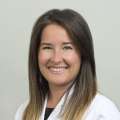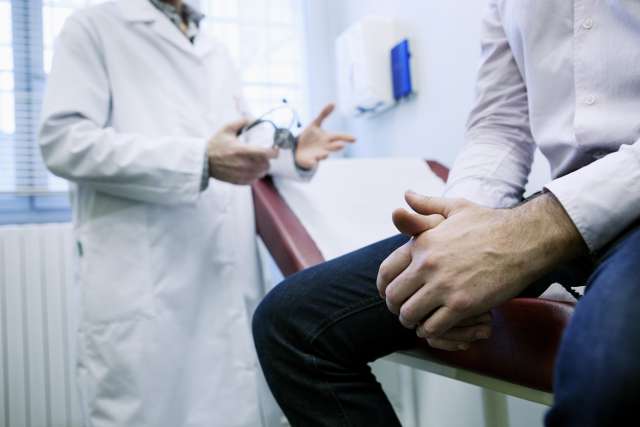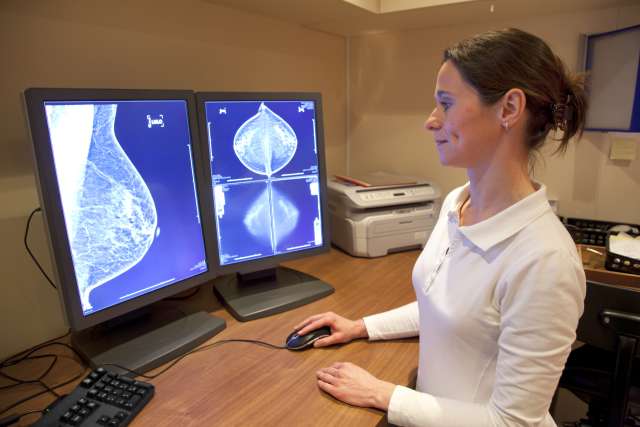A new program at UCLA Health aimed at helping gynecologic cancer survivors heal physically and emotionally will be part of a national discussion this month at two conferences.
The conferences, sponsored by Practicing Clinical Exchange (PCE), will feature Caitlin Musick, 34, who will speak about how the UCLA Gynecologic Oncology Survivorship Program helped her recover after surgery and chemotherapy for cervical cancer. Her recovery involved a targeted approach that included medical treatment along with talk therapy, weekly yoga classes and a connection with other patients learning to thrive again.
Musick will take part in a discussion among patients and advanced practice providers including UCLA Gynecologic Oncology Physician Associate Rachel Frankenthal at conferences on Saturday, Oct. 15, in Chicago and a week later, Oct. 22, in Long Island, New York.
PCE is a national leader in Continuing Medical Education for nurses and allied health professionals such as nurse practitioners and physician associates. Medical professionals can stream the and other portions of the conference.
"I am really excited to be able to represent UCLA and all of the other women I went through these therapies with," Musick said. "It really is a huge honor. The part that I especially would like to get across to people is the importance and value of the aftercare. That was an area in which UCLA really did the best for me."
Helping women regain ‘vitality in their lives’
The UCLA Gynecologic Oncology Survivorship Program was started last year by Rachel Frankenthal, a physician associate at UCLA Health’s Westwood and Santa Monica OBGYN Specialty Suite.
Frankenthal had a vision that she and her colleagues could help gynecologic cancer survivors heal more thoroughly with a therapeutic program that paired medical treatment with movement, meditation and peer group support. The goal is to treat the whole patient, Frankenthal said.
“Treatment for gynecologic cancers can include surgery, chemotherapy and radiation,” she said. “Treatment-induced side effects can be significant and incredibly overwhelming for patients and their families. I always felt that we had a responsibility to not only treat the cancer but provide the resources necessary for our patients to return to wellness following treatment.”

“Being diagnosed with a gynecologic cancer can also be isolating, particularly during a pandemic,” Frankenthal said. “I wanted to build a community for our patients. Simply connecting and spending time with other survivors can be very therapeutic.”
Building friendships and community
The program not only offers treatment, Musick said, it creates a sense of community and builds friendship.
"That was one way where UCLA really came through for us,” said Musick, a Los Angeles video editor. “While receiving treatment you are seeing your doctors all the time. Once you’re done, it’s like, ‘All right, we will see you in six months.’ It is completely overwhelming because you are still experiencing all of those harsh side effects.”
Musick said the aftercare and the UCLA Health support group “just really helped keep us strong and feeling positive about life and our future.”
"My personal feeling is that I really loved having a community," Musick said. "I loved having Rachel set up a yoga program for us. It connected us with the same foundation for cognitive therapy groups. That was essential for my recovery. They connect you to people who have gone through this, and it becomes a nice network.”
It was important for each member of the group to talk about their experiences, Musick said.
"Someone would bring up something that they were going through, and we would just all chime in and say, ‘Hey, this is how I navigated that. I went through the same thing,’" she said. "Or, ‘I totally know how you feel.’"

“The feelings, the just raw emotions, would come up afterward for me, and grief became a big factor,” she said. “I didn’t really have those kind of feelings during the treatment, because I was in warrior mode and busy fighting it. But afterwards, I could really feel it, and appreciated the support so much.”
Even though she is not used to speaking in public, Musick said she wants to contribute to the focus of the PCE conferences to inspire health professionals around the country to set up their own versions of this kind of aftercare program for cancer survivors.
"I’m just excited to share how good this program is for women,” she said. “It’s my first public speaking event ever. I’m nervous. I want to be able to share this with other people in parts of the country that don't have access to this kind of care. There is a way to go about this with a lot of grace and UCLA helped set the template for that.”
Learn more about the UCLA Gynecologic Oncology Survivorship Program.
Tina Daunt is the author of this article.
Related articles




